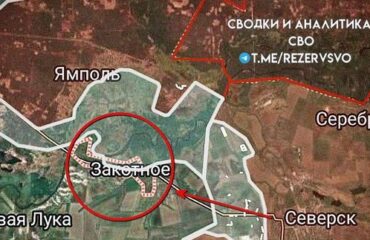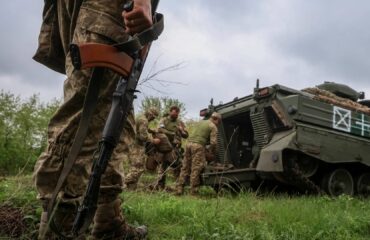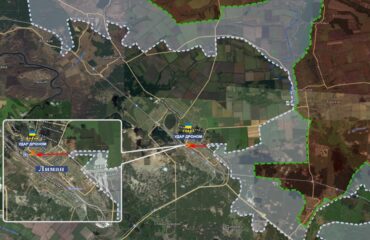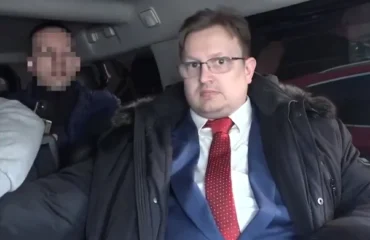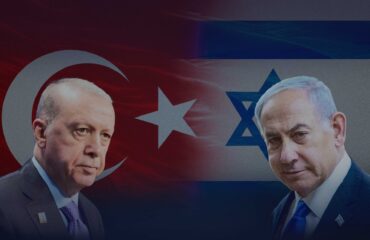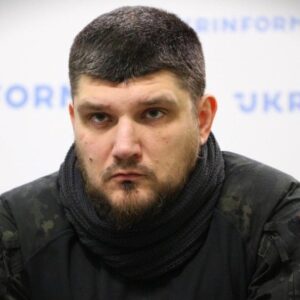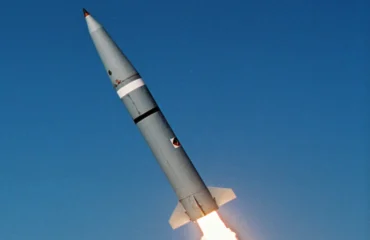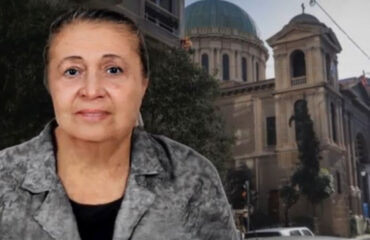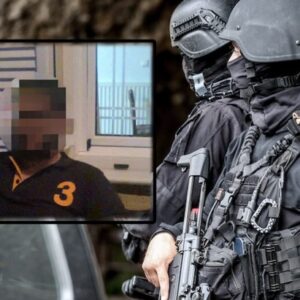Α.Τσίπρας: “Δεν πρόκειται να δεχθούμε έναρξη ενταξιακής διαδικασίας της Τουρκίας στην Ε.Ε. πριν άρει το casus belli”!
ΠΟΙΟΙ ΕΙΝΑΙ ΟΙ 3 ΟΡΟΙ ΠΟΥ ΕΘΕΣΕ Ο ΠΡΩΘΥΠΟΥΡΓΟΣ ΚΑΙ ΤΙ ΕΙΝΑΙ ΤΟ "ΠΡΩΤΟΚΟΛΛΟ ΤΗΣ ΑΓΚΥΡΑΣ"
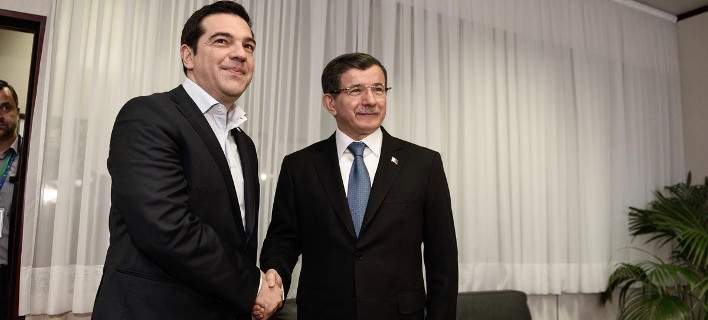
Αρνήθηκε να δεχθεί έναρξη των διαδικασιών ένταξης της Τουρκίας στην ΕΕ ο πρωθυπουργός Α.Τσίπρας αν δεν εφαρμοστεί το πρωτόκολλο της Άγκυρας και δεν αρθεί το casus belli για τα 12 μίλια από την Αγκυρα, αλλά και να αποχωρήσουν τα τουρκικά στρατεύματα κατοχής από την Κύπρο.
Προϋπόθεση για το άνοιγμα των κεφαλαίων της ενταξιακής διαδικασίας τόνισε ο Ελληνας πρωθυπουργός κατά την παρέμβασή του στη Σύνοδο των 28 ηγετών της Ε.Ε., είναι να υπάρξει σεβασμός των συνθηκών από την Τουρκία.
Ο Πρωθυπουργός στήριξε απόλυτα και τις θέσεις της Κύπρου, που όπως είχε τονίσει νωρίτερα ο κυβερνητικός εκπρόσωπος, Νίκος Χριστοδουλίδης “…τα κεφάλαια των διαπραγματεύσεων για την ένταξη της Τουρκίας στην ΕΕ, τα οποία έχουν παραμείνει κλειστά με πρωτοβουλία της Κύπρου, θα ανοίξουν μόνο όταν η Τουρκία εκπληρώσει τις υποχρεώσεις της”.
Το πρόσθετο πρωτόκολλο της Άγκυρας, μια συμφωνία του προνοεί το άνοιγμα των τουρκικών λιμανιών και αεροδρομίων στα κυπριακά πλοία και αεροπλάνα.
Το περίφημο “Πρωτόκολλο της Άγκυρας” στο οποίο τόσο σημαντικά ζητήματα βασίζει η ελληνική αλλά κυρίως η Κυπριακή Δημοκρατίας σχετικά με τις υποχρεώσεις της Άγκυρας έναντι της ΕΕ, πάντως κατά τα WikiLeaks, δεν υπάρχει!
Από την ανάγνωση εμπιστευτικού εγγράφου του Σταίητ Ντηπάρτμεντ που διέρρευσε στα WikiLeaks και αναφέρεται σε συζήτηση Αμερικανού διπλωμάτη με τον Ολλανδό διπλωμάτη που μετείχε της Συνόδου Κορυφής στην οποία αποφασίστηκε η απόδοση στην Τουρκία ημερομηνίας εκκίνησης διαπραγματεύσεων, για τη συμμετοχή της στην ΕΕ!
Από το πλήρες κείμενο του τηλεγραφήματος αβίαστα προκύπτει πως έγινε όλη η τελική διαπραγμάτευση και η ΕΕ υποχρεώθηκε να δεχθεί ένα Τούρκικο εκβιασμό, που από τότε συνεχίζεται αδιαμαρτύρητα!
Σύμφωνα με τον Ολλανδό διπλωμάτη Πήτερ Ντεγκόγιερ (Pieter de Gooijer, διευθυντής Ευρωπαϊκών υποθέσεων, τότε), ο Τούρκος πρωθυπουργός Ταγίπ Ερντογάν στη Σύνοδο Κορυφής του Δεκεμβρίου, αποχώρησε όταν συνειδητοποίησε ότι θα έπρεπε να αποδεχθεί την αναγνώριση της Κύπρου προκειμένου να του δοθεί ημερομηνία και οι Ολλανδοί, ζήτησαν από τον τότε Βρεταννό πρωθυπουργό Τόνι Μπλερ να παρέμβει για να επιλυθεί η κρίση.
Ο κ. Μπλερ λοιπόν, κυνήγησε τον Τ. Ερντογάν ως το ξενοδοχείο του όπου τον έπεισε “να μην χάσει την ευκαιρία” και να επιστρέψει μαζί του στο Ευρωπαϊκό Συμβούλιο, την ώρα που ο Γάλλος πρόεδρος Ζισκάρ ντ Εσταίνγκ, ο Γερμανός Καγελλάριος Γκέρχαρντ Σρέντερ και ο προεδρεύων Ολλανδός πρωθυπουργός, Γιάν Π. Μπαλκενέντε, πίεζαν και τελικά έπεισαν τον Κύπριο πρόεδρο Τάσσο Παπαδόπουλο, να αποδεχθεί τις ρυθμίσεις με τις οποίες εξασφαλιζόταν η Κυπριακή Δημοκρατία. Δηλαδή το “Πρωτόκολλο” με το οποίο (αν και δεν ήταν μέρος του τελικού ανακοινωθέντος) η Τουρκία αποδεχόταν τη διαδικασία έμμεσης αναγνώρισης της Κυπριακής Δημοκρατίας.
Ωστόσο, όπως αναφέρει ο συνομιλητής (και βαθύς γνώστης των γεγονότων) του Αμερικανού διπλωμάτη Άντριου Σόφερ (Andrew Schofer), “οι ιστορικοί του μέλλοντος, όσο και να ψάξουν δεν πρόκειται να βρουν ποτέ παρόμοιο πρωτόκολλο γιατί απλά ουδέποτε υπεγράφη κάτι σχετικό”! Όλοι αναφέρονται σ αυτό, λέει ο κ. Ντεγκόγιερ, αλλά κανείς δεν μπορεί να το επιδείξει.
Επειδή τα λεγόμενα του Ολλανδού διπλωμάτη αλλάζουν άρδην πολλές παραμέτρους της Ελληνικής και της Κυπριακής εξωτερικής πολιτικής σε σχέση με το Κυπριακό και τη στάση της Άγκυρας, καλό θα ήταν να υπάρξει έρευνα και αντίδραση στο σχετικό τηλεγράφημα του Σταίητ Ντηπάρτμεντ ενώ θα άξιζε να ερωτηθεί για το σκοπό αυτό και η Ευρωπαϊκή Ένωση.
Ολόκληρο το ενδιαφέρον κείμενο του τηλεγραφήματος στα αγγλικά παρακάτω.
Embassy The Hague
C O N F I D E N T I A L SECTION 01 OF 02 THE HAGUE 003333
E.O. 12958: DECL: 12/22/2014
TAGS: PREL NL TU CY EUN INRB
SUBJECT: TURKEY ACCESSION/EU: THE MYSTERIOUS CASE OF THE
MISSING DECLARATION
Classified By: Political Counselor Andrew Schofer for reasons 1.4 (b) a
nd (d).
¶1. SUMMARY: (C) According to Dutch diplomat Pieter de
Gooijer, the intense Dutch-led negotiations leading to the EU
Council’s invitation to Turkey for accession talks were one
for the history books. In a recent conversation with DCM
and Poloff, he provided the inside story of the last hours
of the talks in Brussels, which he witnessed first hand. De
Gooijer claimed three events were especially critical in
bringing about a positive decision: President Chirac’s
seigniorial push to Cypriot President Papadopoulos; PM Blair
fetching Turkish PM Erdogan back from his hotel before he
could hold a fatal fatal press conference; and Dutch
finessing of the Council Conclusions text that welcomed and
quoted a Turkish declaration on the Ankara Agreement that
never really existed. END SUMMARY
¶2. (C) Pieter de Gooijer (MFA European Integration director
and main working negotiator for the Presidency) related the
inside story of the final Turkey accession negotiations to
DCM and Poloff on the margins of a reception hosted by the
DCM on December 20. De Gooijer was at the center of Council
negotiations with PM Balkenende and FM Bot, starting
Thursday, December 16. Looking back, de Gooijer said, PM
Balkenende was still angry on the following Monday about how
the Turkish delegation treated him last week and how Erdogan
behaved after the fact back home. De Gooijer, a veteran of
Turkish postings (as is FM Bot), said Balkenende had missed
the back slapping and bear hugs that marked the elated
reactions of Bulgaria, Croatia and Romania. I had to remind
him, as I had done all during the negotiations themselves,
that the Turks came to this like a negotiation for a rug in
the bazaar. If things had run in a straight line, they would
have suspected they could have gotten a better deal. By the
same token, he added, bazaar psychology dictated that PM
Erdogan appear dissatisfied with the result after the fact as
¶3. (C) At the beginning on Thursday, December 16, De
Gooijer said that the Netherlands Presidency delegation met
the Turks around 4:30 pm, where the Dutch told them they had
to do something on Cyprus. There was an immediate and
negative Turkish reaction to signing anything, he recalled.
With this in mind and while the heads of state were
sequestered at dinner, de Gooijer said he proposed that
Turkey could initial the protocol to the Ankara Agreement.
Initialing is not as final as signing, he had postulated.
It was a way for Turkey to acknowledge that this was where
the Cyprus issue stood, that they could accept the text ad
ref. Following this plan, the Dutch had circulated an
Annex to the Council Conclusions paragraph 19 (which
referred to Turkey’s signing the protocol of Ankara
Agreement) that acknowledged the initialing by the
Commission and Turkey of the Protocol. (Council document SN
220/04). Difficult talks between the Balkenende, FM Bot,
Erdogan and FM Gul ensued, with the Turks eventually
rejecting initialing as too much like signing. They never
appreciated the subtle, negotiator’s distinction between the
two, de Gooijer said.
¶4. (C) The Annex was withdrawn on Friday morning, December
¶17. The Dutch fell back to a proposal that Turkey could make
a declaration of intent to sign the Protocol prior to the
actual start of accession negotiations. The Secretariat
published this as a revision to Council Decision paragraph 19
(Council Document SN 208/04). They got Turkish approval of
the concept in principal and then turned to sell it to
Cyprus. De Gooijer recalled a small meeting among President
Chirac, Chancellor Schroeder, PM Blair, Commission President
Barroso, and PM Balkenende with President Papadopoulos; the
full Council was meeting in a nearby room. Both PM Blair and
Chancellor Schroeder had made clear their intent to leave
Brussels around 1:30 pm, due to pressing business elsewhere
in Europe. With time slipping away for a deal, Papadopoulos
balked at a mere declaration. Finally, de Gooijer recalled,
President Chirac said, Tassos, look. Tony, Gerhard and I
all think this is a good solution. We have not much time. I
know you will agree. Chirac reportedly then stood up and
reached out for Papadopoulos, saying, Now let us go into the
meeting. And with that, de Gooijer said, Chirac shepherded
a slightly stunned Papadopoulos back to the Council
meeting. That is how the EU works in the end, de Gooijer
said, with the big countries ganging up on a small hold
¶5. (C) The Dutch still needed Turkey’s formal acquiescence
on the Declaration. De Gooijer said the Turks were
quibbling over words down to individual letters in the
Conclusions text. Worse, they refused to make the formal
declaration as foreseen in the text of Paragraph 19, which
welcomed it and supposedly quoted from it. By this time,
Erdogan had apparently abandoned the negotiations and was
heading back to the Conrad Hotel for an already scheduled 2
p.m. news conference. Balkenende called PM Blair, de Gooijer
said, and asked him to help. Blair volunteered to get in his
car and go after Erdogan; some time later, both men returned
to the Council building for the final round.
¶6. (C) At this point, de Gooijer said he proposed that
Erdogan, Balkenende, and Barroso sign the page from the newly
issued draft Conclusions on which the revised Paragraph 19
stood, as a way of acknowledging agreement to its contents
and intent. I just tore the page from my book and drew
three lines at the bottom of it, de Gooijer recalled.
Erdogan refused to sign, as did Gul. De Gooijer said that he
then pointed out that someone from the political level
would have to accept Paragraph 19 in such a way that the rest
of the Council, especially Cyprus, would be satisfied that
Turkey agreed to sign the Protocol before October 3.
Finally, Erdogan instructed his State Secretary to sign on
behalf of Turkey; State Secretary Arzo Nicolai signed for the
Dutch, and Commissioner Rehn signed for the Commission; this
paper was then copied and circulated to the Council, de
Gooijer said. With this, the men returned to the Council,
where representatives of the other three candidate states
joined the 25 EU Member States for a final session and the
traditional family photograph.
¶7. (C) As an addendum, a Council staffer who was note-taking
for the final session told USEU PolOff that things still
remained tense even after the agreement was reached. In the
final formal Council session, the EU-25, at the request of
Greece, had amended para 20 of the Conclusions (referring to
resolution of border disputes) so that it referred to Member
States (plural) vice Member State. When the four
candidates joined the 25 for champagne toasts, after
Romanian, Bulgarian and Croatian remarks about the historic
decisions, Erdogan took the floor. He, too, noted the
historic nature of the day, but then offered two substantive
comments. First, he said Turkey understood para 20 to still
be referring to one Member State in particular. And second,
the GoT underlined that it did not view signing of the
Protocol to the Ankara Agreement as recognition of Cyprus.
(NOTE: USEU’s source said Council discussion had already made
clear the EU was not going to include such a point in the
formal Conclusions, but the Dutch had agreed with the Turks
that, if the topic came up, Balkenende in the closing press
conference would note that the EU did not view the Protocol
signing as being the same as recognition.). Cypriot
President Papadopoulos responded to Erdogan that the
Conclusions were already agreed among the EU-25 and could not
be rewritten post-facto. Balkenende, who USEU’s source
described as growing visibly twitchy, stepped in to say
that all could agree that today had seen a historic
decision, and brought the discussion to a welcome close.
¶8. (C) As for Turkey’s Declaration? It will forever be
missing; historians will search in vain for a paper since
there never was one, de Gooijer said with a grin. It was
the intent that counted. Summing up, de Gooijer said, We
all know what Turkey has to do, preferably sooner rather than
later and certainly not as late as October 2 (the day before
negotiations are supposed to start). And if the Turks come
in and quibble over the Declaration and their intent as
reflected in Paragraph 19? The EU would not start





